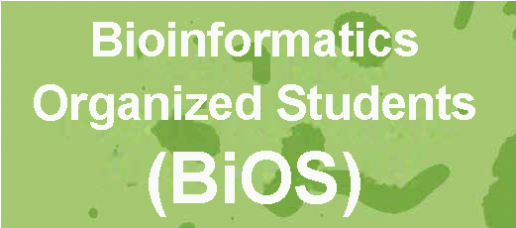Bioinformatics Program Annual Retreat
The annual program retreat is being held at the Wachusett Village Inn
Friday and Saturday, June 3-4
Bioinformatics Student Sara Garamszegi Selected as Fellow for 2011 NSF Graduate Research Fellowship Program
Congratulations to Sara Garamszegi!
Sara has been selected as one of the fellows in the prestigious 2011 National Science Foundation Graduate Research Fellowship Program (NSF GRFP.)
C&EN News Features Tullius Research
A recent article in C&NNews titled "Putting DNA in a Bind" prominently featured BU Bioinformatics Interim Director and Professor of Chemistry Tom Tullius and his group for their use of hydroxyl radical cleavage. This process was developed in the Tullius lab.
The Chemistry department acknowledges this exciting achievement on its website, as well.
Read the C&N News story here.
Boston University Bioinformatics researcher Avrum Spira lauded for leading-edge lung cancer research efforts
November 17, 2010:
Uniting Against Lung Cancer (Uniting) announces the "Caine Halter Hope Now Award for Lung Cancer Research."
This year's recipient is Avrum Spira, M.D., M.Sc., Associate Professor of Medicine, Pathology and Laboratory Medicine and Director, Translational Bioinformatics Program, Clinical and Translational Science Institute, Boston University.
The annual Hope Now Award is intended for the research lab and its leader showing the most progress in lung cancer research in a particular year. The purpose of this award is to provide funding for and to recognize the demonstrated excellence of research labs seeking to develop medical treatments for lung cancer. Dr. Spira will receive a one-year award of $25,000 to apply towards lung cancer research.
The Uniting Against Lung Cancer Medical Committee nominated candidates for the award recognizing leading lung cancer research labs, with a specific individual as the recipient.
Dr. Spira leads the Pulmonomics Lab at Boston University. Using an array of bioinformatic approaches, including experimental, statistical, and computational methods, Dr. Spira's lab analyzes gene expression patterns in the airway and in lung tissue to non-invasively detect patients at high risk for lung cancer. Earlier this year, Dr. Spira and his colleagues identified a potential biomarker for early detection of lung cancer that can distinguish between smokers with and without disease, and reported a potential treatment for these patients that can reverse the changes in gene activity. This work represents Dr. Spira's continuing efforts to use advanced bioinformatics tools towards the early detection of lung cancer and to seek out novel treatments to improve patients' quality of life.
Lung cancer is the number one cancer killer in the United States: 160,000 people will die from lung cancer this year, more than breast, prostate, pancreatic and colorectal cancers combined. Yet, lung cancer is severely underfunded, receiving only 17% of government funding for these cancers. Uniting Against Lung Cancer provides funds directly for research, and has funded over $12 million to bring us closer to a cure.
Uniting seeks to fund innovative and novel research, as well as to support promising young researchers, allowing the scientific leaders of tomorrow to devote their efforts to curing lung cancer. The Legacy Programs fund critical research in early detection, improved treatments and a cure for lung cancer. In 2010, Uniting has committed $1.2 million in Legacy Grants to lung cancer researchers across the country. Uniting has also committed an additional $1 million to its continuing partnership with the Canary Foundation to find biomarkers for early detection of lung cancer in never-smokers.
Caine Halter was a healthy, 45-year old non-smoker whose life was taken by lung cancer in August 2007 after a valiant 13-month battle. Inspired by his courage and grace, Caine's family and friends are committed to raising funds for lung cancer research in his honor, so that others diagnosed may have a fighting chance to live. In 2008, The Caine Halter Fund for Lung Cancer Research began sponsorship of the Hope Now Award, which is now known as the Caine Halter Hope Now Award.
(Text provided by Boston University Medical Center)
PhD Candidate Stephanie Schneider Chosen for Oral Distinction at GSI Research Symposium
BU Bioinformatics PhD candidate Stephanie Schneider was chosen for oral distinction and gave a talk at the GSI Research Symposium, held on October 6, 2010. Ms. Schneider was chosen based on her abstract:
Improving the Interpretation of Affymetrix GeneChip Data Using Coefficient of Concordance and Graph Theory
A great deal of gene expression data is available for mining in various public repositories, such as NCBI's Gene Expression Omnibus (GEO). This data can be a vaulable resource for performing meta-analyses, cross-species comparisons, etc. The most common type of data currently found in GEO is from Affymetrix GeneChip\circledR Arrays; the top five most common gene expression microarrays constitute over 100,000 out of the nearly 500,000 samples in GEO. One potential complication of interpreting Affymetrix microarray data is that each array contains multiple probe sets mapping to the same gene. The average number of probe sets per gene is approximately two, but many genes are represented by ten or more probe sets each. Occasionally, individual probe sets for the same gene show different trends in expression across experimental conditions, a situation that must be resolved in order to accurately interpret the data. We have developed a generalized and improved analysis using Kendall's W coefficient of concordance for statistical consolidation of concordance probe set groups and graph searching algorithms for a posteriori identification of discordant groups for further analysis (e.g., detection of differential expression of splice variants). We compare this approach to other statistical approaches to this problem, as well as to the custom CDF (chip definition file) approach, and show how the use of our approach is simpler, more widely applicable, and potentially reveals more informative results that the other approaches. In particular, our approach has revealed that certain probe sets of the same gene respond differently than others in different conditions, i.e., they may be concordant in some conditions but discordant in others, thus providing additional information about tissue-specific expression.
October 8, 2010: Bioinformatics Walks the Freedom Trail
On October 8th students and staff from the Bioinformatics department enjoyed a walking tour of Boston's historic Freedom Trail.
Happy Hour Set for November 19, 2010
Bioinformatics students are welcome to attend a happy hour hosted by the department on November 19, 2010 at 5 p.m. Join us for drinks and conversation in the student lounge!
December 8, 2010: Bioinformatics Department Holiday Party
The annual Bioinformatics Holiday Party will be held at The Castle at Boston University on December 8, 2010.
10th Annual International Workshop on Bioinformatics and Systems Biology (July 25-28, 2010)
The Tenth Annual International Workshop on Bioinformatics and Systems Biology will take place from July 25-28, 2010 at Kyoto University. This student-focused event is a part of a collaborative educational program involving the BU Graduate Program in Bioinformatics, the International Research Training Group (IRTG) in Berlin and the Joint Bioinformatics Education Program of Kyoto University and University of Tokyo. Held every year since 2001, it provides doctoral students an opportunity to present and discuss their research objectives, approaches and results in the emerging fields of genomics, systems biology and bioinformatics. Please visit the official site for more information.
2010 Student-Organized Symposium
Assembling the Puzzle of Our Biology
WEDNESDAY, JUNE 9th, 2010, 10AM - 6PM
BU Life Science and Engineering Building (LSEB) Room B01
24 Cummington Street, Boston, MA 02215
The Symposium is free and open to the general public. To view the schedule of speakers, please visit the site.
Participants will hear a panel of scientific innovators from the academic and private sectors share their work and ideas as they relate to this highly important field.
Scheduled Speakers
Peer Bork, PhD
Group Leader and Senior Scientist
Structural and Computational Biology Unit
European Molecular Biology Laboratory (EMBL), Heidelberg
Peer Bork's bio
Isaac Kohane, MD, PhD
Chair, Informatics Program
Lawrence J. Henderson Professor of Pediatrics and Health Sciences and Technology
Children’s Hospital Boston
Isaac Kohane's bio
Paul de Bakker, PhD
Assistant Professor of Medicine, Division of Genetics, Brigham and Women's Hospital and Harvard Medical School
Director, Genomics Program, Harvard University Center for AIDS Research (HU CFAR)
Paul de Bakker's bio
Martha Bulyk, PhD
Associate Professor of Medicine and Pathology (and Health Sciences and Technology)
Harvard Medical School
Brigham & Women's Hospital
Martha Bulyk's bio




